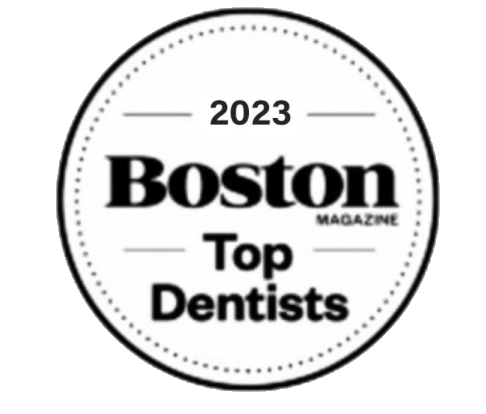Will I be asleep for my wisdom tooth surgery?

If you are having your wisdom teeth extracted, you may have some questions, such as what kind of anesthesia will be used and whether or not you’ll be awake for the procedure. Here’s what to expect.
What Are Wisdom Teeth?
Wisdom teeth are a 3rd set of molars (Third Molars) that develop behind the 12 year molars (second Molars) in the back of your mouth. These 4 teeth typically develop between the ages of 17 and 25, and are the last set of teeth to develop - which is the reason they are called “wisdom teeth.”
Why Do Wisdom Teeth Need To Be Extracted?
Most people do not have adequate space in their jaw for their third molars to erupt in a position that is favorable for hygiene and proper function. Crowding of these teeth during development can lead to incomplete eruption (impaction) often with encroachment on to the adjacent second molars. Pressed against the existing molars teeth may shift, but also there is risk of extension of dental disease from the third molars to other molars Not all wisdom teeth require removal, but all wisdom teeth should be evaluated by an experienced oral and maxillofacial surgeon.
What Type of Anesthesia is Used For Wisdom Teeth Extraction?
The type of anesthesia used for wisdom teeth extraction depends on procedure complexity and the individual needs of the patient. The specific classification of a tooth as impacted or erupted is not the determining factor for what type of anesthesia your oral and maxillofacial surgeon will suggest or that you may choose. Different patients have different needs and preferences.
IV sedation describes the administration of anesthetics and sedatives intravenously through a vein in the hand or arm to create a moderate to deeply sedated state of consciousness. Sometimes referred to conscious sedation, this level of anesthesia will make the patient feel euphoric, blissful and sleepy, but they will still be arousable and able to respond to commands. Patients receiving IV sedation usually have no memory of the procedure despite having experienced some level of awareness. IV Sedation is the most common method of anesthesia for short, routine, in-office ambulatory oral surgery procedures.
In some cases General Anesthesia may be recommended or requested. When appropriate advanced anesthesia may be provided to offer a more complete and profound anesthesia experience. General anesthesia induces a sleep-like state with the patient fully unconscious and unresponsive to stimulus. Anesthetic medications are administered intravenously (through an I.V.) and inhalational medication (inhaled through a mask) may also be administered. General anesthesia is often performed with the aid of an airway supportive device such as a Laryngeal Mask Airway (LMA) or an endotracheal tube (ET Tube), placed after you are asleep, to help you breathe safely during the procedure. Patients receiving general anesthesia are continuously monitored with a pulse oximeter, blood pressure cuff, an EKG, and capnography throughout the procedure.
What Anesthesia is Best For Dental Anxiety?
Some patients feel nervous, anxious, or even afraid of the wisdom teeth extraction procedure. If you feel any negative or stressful feelings about having your wisdom teeth extracted, sedation is always an option. Either of the following options may be helpful:
- Nitrous oxide. Nitrous Oxide can be administered to patients to supplement local anesthesia (Novocaine). Nitrous oxide is delivered through a mask worn over your nose. As you breathe in and out through your nose a calming feeling takes effect. It begins wearing off as soon as the agent is turned off.
- IV sedation. As described above, IV sedation makes you sleepy and blissful. The level of sedation is increased or decreased by titrated amounts of medication administered by your doctor.
- General Anesthesia. As described above, general anesthesia creates an unarousable state of unconsciousness and is a good option for patients resistant to IV Sedation or for patients requiring longer more complex surgical procedures.
The type of anesthesia that is best for you depends on your personal preference and the recommendation of your oral surgeon. Together you will decide which option would be most appropriate for your care.
Why Choose an Oral Surgeon for Wisdom Teeth Extraction?
Oral and maxillofacial surgeons (OMFS) specialize in surgical procedures of the face and jaws, this includes the management of wisdom teeth. Oral and Maxillofacial Surgeons train for 4-7 years AFTER dental school and then undergo a 2 year examination and evaluation period AFTER residency to become Board Certified Specialists. Oral and Maxillofacial Surgeons are the unrivaled experts in the safe and expeditions provision of care for all oral surgery, dental extractions and wisdom tooth procedures. Oral and Maxillofacial Surgeons are also the only surgical specialty that receive anesthesia training alongside both anesthesiologists and intensivists, making them uniquely capable to administer in-office anesthesia care to alleviate fear and maximize comfort during surgical procedures. The education differential between and oral and maxillofacial surgeons and other dental providers leave no debate that patients are best served by consultation and treatment of third molars by a board certified OMFS.
Why Choose Lucca Oral & Facial Surgery?
If you need to have your wisdom teeth removed, Lucca Oral & Facial Surgery specializes in all aspects of oral surgery, exodontia, impacted teeth, oral pathology, dental implants and third molar management. Dr. Lucca is a Board Certified Oral and Maxillofacial Surgery with nearly 14 years of experience as a private practicing oral and maxillofacial surgeon in addition to multiple years providing full scope OMFS services at local area hospitals.
Wondering if your wisdom teeth need to be extracted? Please contact our office to schedule a consultation today.
Call 617-300-0345 or contact us and a team member will assist you today!






